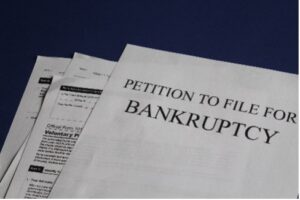Debt can feel like a giant boulder on your shoulders, and when it gets too heavy to bear, you might find yourself looking for ways to lighten the load. Thankfully, several options for debt relief are available to consumers. But which one is right for you? The best choice depends on your circumstances, the type of debt you hold, and your long-term financial goals.
In this blog post, we’ll explore some of the most common options for debt relief and discuss the pros and cons of each.
Table of Contents:
- 5 Debt Resolution Options and Their Potential Risks
- Which Debt Reduction Option Is Best for You?
- How to Find a Reliable Debt Services Company
- How Do Debt Relief Programs Work?
- Is a Debt Relief Program Worth It?
- What Are the Benefits of a Debt Relief Program?
- How to Avoid Falling Behind on Debt Payments
- Debt Relief Services Can Lend You a Helping Hand
5 Debt Resolution Options and Their Potential Risks
With the right knowledge, managing your debt on your own is usually possible. However, everyone’s financial situation is unique and may require different solutions. If your debt has become overwhelming and you need help, consider the pros and cons of these common debt relief options to determine which one might be best for you.
Debt Consolidation Loan
A debt consolidation service involves taking out a new loan that will combine multiple other debts into one. With only one all-encompassing loan, you will have a single fixed interest rate and set of repayment details. This usually works best with unsecured loans.
Pros:
- Streamlined Payments: Combining multiple debts means you only have to track one monthly payment, which is more manageable for most people.
- Lower Risk of Late Fees: With just one payment to manage, you reduce your chances of missing payments and racking up multiple late fees.
- Potential Interest Savings: Often, these loans have lower interest rates than your original debts. With a lower interest rate, more of your payment goes toward the principal.
- Credit Score Boost: Consolidating your debt can improve your credit utilization ratio and make it easier to manage payments, potentially benefiting your credit score in the long run.
- Fixed Repayment Schedule: Debt consolidation loans help you plan your finances better with a clear end date.
Cons:
- Risk of More Debt: If you’re not disciplined, you might accrue new debt on top of the consolidation loan.
- Collateral Often Required: Some debt consolidation loans may require collateral, risking assets like your home, vehicles, or valuables.
- Bad Credit Barrier: If your credit score is 740 or above, you’re in the sweet spot for getting the best interest rates. People with scores between 670 and 739 still get reasonable deals. However, scores below 670 tend to get significantly higher interest rates, which could make consolidation feel like more trouble than it’s worth.
- Initial Fees: Upfront costs can add to the overall expense. This debt resolution option often has origination fees of up to 8%.
- Initial Credit Score Reduction: Applying for a new loan may initially cause a small dip in your credit score due to the hard inquiry. However, according to Experian, the drop is usually less than 5 points, and your score should recover within a few months.
Debt Settlement
Debt Settlement involves negotiating with creditors to allow you to pay a lump sum that is less than what you owe to settle your debt. For example, if you owed $10,000, you could negotiate a single immediate $6,000 payment, and the lender would forgive the remaining debt.
This option is usually pursued through a debt settlement company.
Pros:
- Debt Reduction: You often pay less than the original amount owed.
- Avoid Bankruptcy: It’s a viable option for those wanting to bypass the severe consequences of bankruptcy.
- Negotiation Opportunities: You can often work with a company to find a more advantageous deal.
Cons:
- Credit Score Damage: Your debt settlement company may require you to stop making payments while negotiations are ongoing, negatively affecting your credit score and possibly accruing late fees.
- No Guarantee: Creditors are not mandated to accept settlement offers.
- Tax Implications: The IRS may consider forgiven debt to be taxable income. However, if you can prove to the IRS that you are insolvent, they may waive the tax on your discharged debt.
- Fees: Debt settlement companies usually charge a percentage of the settled amount. Expect to pay 15% to 25% of your enrolled debt.
Credit Counseling
Credit counseling happens when agencies help you manage your debt and design a personalized debt management plan (DMP). They negotiate with creditors on your behalf to reduce interest rates and waive fees.
Pros:
- Professional Guidance: This option offers an education-based approach to handling debt.
- Reduction in Rates and Fees: These agencies can lower your interest rates and minimum payments and stop late fees.
- Structured Payments: Credit counseling establishes a clear path toward debt repayment and creates clear goals and milestones.
Cons:
- Duration: DDMPs typically take 3-5 years to complete, and many people struggle to stick with their plan for that long.
- Fees: While most DMP fees are very modest, there are still setup and monthly fees involved.
- Credit Impact: You’ll have to close the credit cards included in the DMP. Closing credit accounts hurts your credit history, which makes up 15% of your credit score.
Balance Transfer
With a balance transfer, you transfer your high-interest debt to a credit card with a lower interest rate—often a 0% introductory rate.
Pros:
- Interest Savings: You can significantly reduce interest costs during the promotional period.
- Single Payment: A balance transfer centralizes your credit card debt, making it easier to manage financially and less likely that you’ll miss payments.
Cons:
- Short Introductory Period: Promotional rates are temporary, often 12-18 months.
- Post-Intro Rates: If left unpaid, remaining balances may be subject to high post-promotional rates.
- Transfer Fees: There’s often a 3–5% fee on the transferred amount.
- Potential Debt Accumulation: When you only have one payment, it’s easier to accrue more debt if you don’t curb your spending.
Bankruptcy
Bankruptcy is a legal process where an individual or business declares their inability to pay back their debts. There are different types of bankruptcy filings, with Chapter 7 and Chapter 13 being the most common for individuals.
Simply put, Chapter 7 helps people who need quick solutions by liquidating their assets. Chapter 13 is better for those who want to keep their assets and can plan to make payments to pay off some of their debts over time.
Pros:
- Clean Slate: Chapter 7 discharges most unsecured debts, giving you immediate freedom.
- Repayment Structure: Chapter 13 restructures debt into a manageable repayment plan so you can pay off your debt with less pressure.
- Automatic Stay: Bankruptcy stops most debt collection actions, including foreclosures and garnishments.
Cons:
- Severe Credit Impact: Bankruptcy can reduce your credit score by as much as 200 points and remains on your credit report for 7–10 years. This can make it extremely hard to open new cards or make larger purchases down the road.
- Loss of Assets: Chapter 7 may require liquidating certain assets to repay creditors. You may lose your home, vehicle, or other valuables.
- Not All Debts Covered: Obligations like student loans, alimony, and child support typically aren’t discharged.
It’s important to consider that while bankruptcy has major debt relief benefits, it also has steep consequences. This is one of the most drastic measures you can take, so it’s best to consider bankruptcy alternatives before proceeding.
Which Debt Reduction Option Is Best for You?
There isn’t a one-size-fits-all answer to this question. Choosing the best program will depend on factors like:
- Your debt amount
- The type of debt you have
- Your financial habits
- Your credit score
- Your assets
- Your long-term financial goals
Before pursuing any of these five debt reduction options, it’s essential to conduct thorough research and consult with experienced financial professionals. This can help you understand financial terms and potential consequences and ensure the method you choose is the best fit for your situation.
Remember, while debt can feel overwhelming, there are paths to regaining your financial freedom. Prioritize understanding your options, and make informed decisions based on your individual circumstances.
At Debt Reduction Services, our team of trained and experienced professionals can help you find and understand your best option. See our reviews for yourself, then contact us today and set up a consultation so we can get you on the right track.
How to Find a Reliable Debt Services Company
Are debt recovery solutions legitimate? They can be if you find the right company.
There are many debt relief services out there clamoring for your attention, but how do you find a reputable one that won’t take advantage of your situation? You can look for a handful of key things that will let you know whether or not a credit management company is legit.
- Free Information: A reputable and legitimate company will never charge you for information. They also won’t withhold the details of their services until you explain your situation.
- Reviews: You can take time to read reviews of the debt services company and see what other clients experienced. A good company will have far more positive reviews than negative ones.
- Check the State Consumer Protection Agency Website: This government website will show if any complaints have been filed about the debt relief company you’re interested in. If they have a complaint, it’s a good idea to steer clear. You can also look on the Better Business Bureau website to see if the business is reliable and reputable.
- The Fine Print: Many less reputable debt relief companies will have over-complicated fine print to hide details about high hidden fees. Read everything thoroughly before agreeing to anything, so you know what to expect.
- Certifications: Ask to see the certification or accreditation of the counselor you’re working with. Then you can tell if they’ve had the proper training and licensing to give advice.
- Services Offered: If the business only offers debt consolidation, it may not be the best option. Well-rounded companies offering many services like financial counseling, debt education materials, and more are better options.
- Specific Quotes: Never sign any contracts with a company that won’t give you a quote. Get all the information and predictions about your payments in writing before making a commitment.
Debt Reduction Services is here to help! We truly want to help our clients and will give you quotes and all the necessary information to get your finances back on track. Call us at (866) 688-3328 to discuss your debt resolution options with a certified counselor.
How Do Debt Relief Programs Work?
Debt relief programs are often the best way to recover from debt. These programs provide structured plans to reduce and manage your debt. They typically work by negotiating with creditors to:
- Lower interest rates
- Reduce late or over-limit fees
- Consolidate multiple debts into a single payment plan
- Lengthen loan terms
Not all creditors will agree to these terms, but it’s possible to achieve some changes to your debt that will make the load lighter.
Is a Debt Relief Program Worth It?
A debt relief program can be the most sensible solution for many people struggling with debt—and much wiser than options like payday loans.
Still, some hesitate to move forward because they’re not sure if it’s a legitimate debt recovery solution. This skepticism often stems from misconceptions and bad experiences. However, the reality is that these programs can offer significant benefits when used correctly.
What Are the Benefits of a Debt Relief Program?
There are three main benefits for anyone who decides to commit to a debt relief program with Debt Reduction Services.
1. Significant Debt Reduction
Consumers who complete debt relief programs typically see significant debt reduction. Working with a legitimate credit management company can greatly improve your financial health.
2. Psychological Relief
Consider the potential psychological benefits of a debt relief program. A study by the American Psychological Association found that 63% of adults consider money one of the biggest sources of stress in their lives.
Consistently reducing your debt through a structured debt relief program could help alleviate the anxiety and stress of mounting debt.
3. Debt Relief Problems Have Rules
While drastically reducing your debt burden makes debt relief programs a smart option, you should also recognize that reputable debt relief companies are accredited and follow stringent regulatory guidelines.
For instance, the Partnership for Financial Education helps debt counselors comply with state laws and ethical guidelines.
Follow our previous suggestions to find a reputable debt relief company that will follow the rules and give you the best debt relief services.
How to Avoid Falling Behind on Debt Payments
Getting out of debt can be a big challenge. Once you’re on track toward resolving your debts, you’ll want to avoid falling back into old habits. Here are some tips to help you stay on top of debt payments and maintain financial stability.
Create and Stick to a Budget
Set up a realistic budget. Track your income and expenses to see where your money goes each month. Allocate funds to specific categories like:
- Living costs (rent or mortgage, utilities, HOA fees)
- Daily essentials (food, cleaning supplies, toilet paper, gas, clothing, etc.)
- Regular payments (phone, streaming services, insurance, etc.)
- Debt payments
- Savings
- Fun Extras (theater, bowling, eating out, games, extra clothing or accessories, etc.)
Prioritize your expenses and plan where your next paycheck will go. If necessary, cut down on the extras so you can better afford the necessities. A budget helps you live within your means and keep up with your payments.
Build an Emergency Fund
An emergency fund is your financial safety net. You won’t know when a medical emergency, job loss, or natural disaster could hit you, but you can be prepared.
Aim to save at least three to six months of living expenses. Then, if something unexpected comes up, you won’t have to rely on credit cards or loans.
Automate Payments
Set up automatic payments for your bills and debts. This ensures you never miss a due date, avoiding late fees and keeping your credit score intact. Plus, it’s one less thing to worry about each month.
Prioritize High-Interest Debt
If you have multiple debts, prioritize paying off any high-interest debt first. This approach reduces your interest over time, freeing up more money to tackle the principal.
Limit Your Credit Card Use
It’s easier to overspend when you use a credit card and not cash. Try not to use credit cards for everyday expenses unless you can pay off the balance in full each month. Using cash or a debit card can help control spending and prevent new debt from piling up.
Regularly Review Your Finances
Keep an eye on your financial situation and regularly review how well you’re managing your expenses. Adjust your budget as needed.
Be sure to also check your credit report occasionally to catch any errors or signs of identity theft early.
Seek Professional Advice
If managing your finances feels overwhelming, don’t hesitate to seek help from a financial advisor or credit counselor.
Our experts at Debt Reduction Services can offer insightful debt resolution options and strategies tailored to you that will keep you on track.
Debt Relief Services Can Lend You a Helping Hand
You can fall into debt for numerous reasons—a job loss, divorce, medical bills, overspending habits, a natural disaster, or even not fully understanding important financial terms.
Fortunately, Debt Reduction Services can help you get out of debt with our comprehensive options for debt relief. We offer:
- Debt management plans
- Debt consolidation services
- Credit counseling
Our certified and highly trained counselors have successfully helped numerous people regain financial stability. We take the time to understand your unique financial situation and create a financial recovery plan that works for you.
Contact Debt Reduction Services or call us at (866) 688-3328 today to speak with a Certified Debt Relief Counselor and start your journey to a debt-free future!
About the Author
Eric has amassed extensive experience in the financial and credit counseling sector, dedicating numerous years to this industry. Presently, he serves as a certified credit counselor at Debt Reduction Services, leveraging his expertise to assist individuals in managing their debts effectively. Throughout his career, Eric has consistently exhibited his commitment to empowering consumers with the knowledge and tools necessary to navigate their financial challenges.














